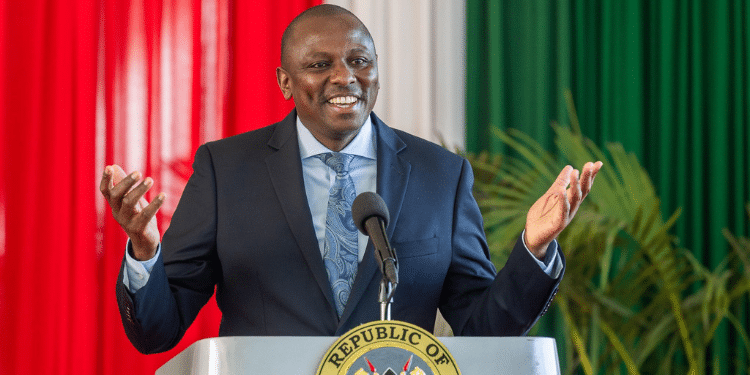National Assembly Majority Leader Kimani Ichung'wah has revealed that in December 2024, Parliament passed the contentious Finance Bill 2024 despite its withdrawal following widespread protests.
Speaking during a church service at PCEA Kikuyu on Sunday, June 22, Ichung'wah said that Kenyans were lied to about clauses contained in the bill, "We tried to enlighten them, but they did not listen to us."
Ichung’wah, revealed that MPs finally decided not to pass the bill until people cooled down, eventually giving the greenlight for the proposed taxes in December.
"For your information, because not many people know this, on June 25, we decided not to sign it in. On December 4, 2024, only five months later, everything that was in the finance bill was passed quietly, without any deaths or throwing stones, until 97 per cent of it passed." said the Kikuyu Mp.
The 2024 finance bill proposed a vast array of tax measures that would continue the country’s pattern of raising taxes from the poor to pay debt that undermines growth and wellbeing of its citizens. In summary, the bill proposed amongst others;
An Eco Levy imposed on imported sanitary towels and diapers.
16% tax on goods and services for direct and exclusive use in the construction and equipping of specialized hospitals with a minimum bed capacity of 50.
16% sales tax on bread and 25% duty on cooking oil.
50% reduced allocation for the provision of free delivery services at public hospitals under the Linda Mama Program.
3% levy on liquid paraffin stoves.
Increased excise duty on mobile money transfers.
Withholding taxes on digital payment facilitated by digital marketplace owners.
Previously, the Finance Bill 2023 had already set a precedent for increased taxation of Kenya’s most vulnerable, and to maintain its relationship of servitude with the IMF, and against the advice of the World Bank (World Bank,2023) the country’s leadership doubled down on the regressive tax regime in the 2024 bill.
In addition, the bill inflated the country’s wage bill by creating, for instance, the offices of the First Lady, the Deputy First Lady, and the spouse of the Prime Secretary – each with a budget, an office and staff in a country where the legislators are the second highest paid in the world in relation to GDP.
What followed these proposals? There was widespread public outcry and mobilization while the bill was being rushed through the legislature in an unprecedented show of the government’s disregard for ordinary Kenyans. Activists, citizens and professionals from all sectors began to dismantle the bill’s contents and draft a picture of its future implications if passed. The campaign to be later dubbed #RejectFinanceBill2024 started to take shape.
Social media became a key avenue for the dissemination of this information and indeed this may have contributed greatly to the pivotal role the youth (commonly referred to during the protests as Gen Z) played in this revolution. Content creators, community educators, ordinary folks and civil society created messaging on the finance bill in audio, visual and written formats including across several of Kenya’s vernacular languages. This campaign succeeded in galvanizing Kenyans against the bill’s contents and by extension, against the country’s leadership.
This outrage marked another pivotal point in Kenya’s history where external debt, internal governance issues and the resultant socio-economic pressures threatened the country’s prosperity, democratization and development.
Eventually, President William Ruto withdrew the bill. However, the admission by Kimani Ichung’wah shows the government’s continued disregard for the rule of law and the constitution.
The Finance Bill undergoes a legislative process, including publication and public participation, where the draft bill is published, and public comments and input are solicited. The Bill is then introduced in Parliament and is subject to debate, amendments, and eventual approval. Once Parliament passes, the President must assent to the Finance Bill for it to become law. The Finance Bill has been a big part of shaping Kenya’s tax landscape and influencing the business environment, investment decisions, and citizens’ financial obligations.







